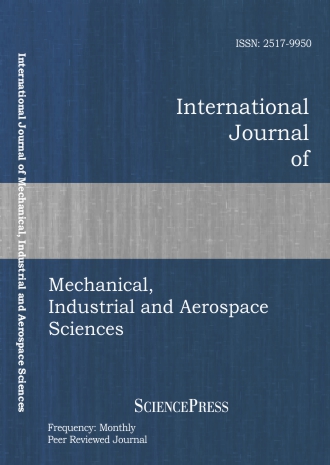
Scholarly
Volume:6, Issue: 11, 2012 Page No: 2338 - 2343
International Journal of Mechanical, Industrial and Aerospace Sciences
ISSN: 2517-9950
2729 Downloads
Design Parameters Selection and Optimization of Weld Zone Development in Resistance Spot Welding
This paper investigates the development of weld zone in Resistance Spot Welding (RSW) which focuses on weld nugget and Heat Affected Zone (HAZ). The effects of four factors namely weld current, weld time, electrode force and hold time were studied using a general 24 factorial design augmented by five centre points. The results of the analysis showed that all selected factors except hold time exhibit significant effect on weld nugget radius and HAZ size. Optimization of the welding parameters (weld current, weld time and electrode force) to normalize weld nugget and to minimize HAZ size was then conducted using Central Composite Design (CCD) in Response Surface Methodology (RSM) and the optimum parameters were determined. A regression model for radius of weld nugget and HAZ size was developed and its adequacy was evaluated. The experimental results obtained under optimum operating conditions were then compared with the predicted values and were found to agree satisfactorily with each other
Authors:
References:
[1] H.Eisazadeh, M.Hamedi, A.Halvaee,"New parametric study of nugget size in resistance spot welding process using Finite element method", Materials and Design, vol.31, pp.149-157, 2010.